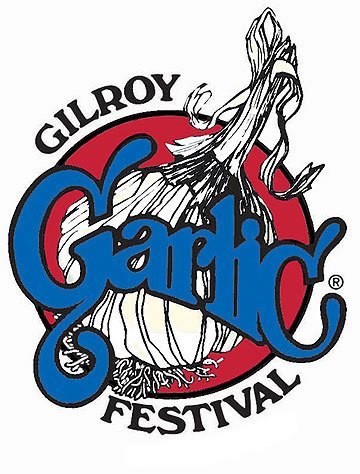After almost six years of litigation, the Garlic Festival has
been granted another victory in a fight against a Hollister-based
motorcycle club over its dress code.
Gilroy – After almost six years of litigation, the Garlic Festival has been granted another victory in a fight against a Hollister-based motorcycle club over its dress code.
The U.S. Court of Appeals for the Ninth Circuit upheld the constitutionality of the Gilroy Garlic Festival Association’s decision to restrict members of the Top Hatters Motorcycle Club from attending the festival July 30, 2000 while wearing matching jackets with patches and insignia on them. The city of Gilroy, which was included in the case because the 2000 festival took place at the public Christmas Hill Park, also was cleared of any wrongdoing.
“We’re obviously pleased that the appellate court upheld the decision,” said Brian Bowe, executive director for the festival. “We’ve been confident that that court would rule in our favor, but you never know. Different justices can see things different ways.”
Color Wars
For the 2000 festival, the association had a dress code that banned gang colors. The policy was not available on its Web site, but was posted at every entrance, said officials at the time.
When four members of the Top Hatters entered the festival, a Gilroy police officer was alerted to their presence, explained the dress code and asked them to remove their jackets. When they refused, the officer escorted them out and the festival refunded their admission.
“What really is important to recognize here is we’re a celebration of food, fun and family,” said Bowe. “It’s our policy to provide a safe atmosphere for all of our attendees and volunteers.”
In July of 2001, the motorcycle club filed a complaint that the festival had violated its right to free speech and the city had violated its right to free assembly.
The four members and their jackets did not stand against the aims of the garlic festival, said Randolph Hammock, a Canoga Park lawyer representing the four members and the owner of a 2002 Harley Davidson Softtail.
“My clients are part of that family-oriented environment,” he said. “They all have jobs – one’s a pharmacist, two of them worked for the city of Hollister for 30 years. What makes them different is they like to ride Harley Davidsons.”
In the more than five years since the original complaint, courts dismissed the case and handed down a summary judgment in favor of the city and festival. The motorcycle club appealed both of these decisions – seeking a change in the festival’s dress policy and a reimbursement of legal fees – and Hammock argued the case again in February before the court of appeals.
The Motorcyclist’s Legal Crash
The festival did not violate the club’s right to free speech because the club’s insignia – a skull with wings wearing a top hat – which was on the jacket, did not have a clear message, a court opinion stated.
While one appellant, George Villegas, testified the skull represented the “belief that underneath our skin all of us are alike,” another appellant, Donald Derosiers, stated the skull signified death, according to the court opinion. A third appellant, Bob Poelker, stated the insignia meant “whatever you want to interpret it as.”
The city did not violate the club’s right to free assembly because there was no evidence that the members of the club were in the midst of any type of expression when the police escorted them out, the court opinion continued.
This was unconvincing to Hammock, who said that the court’s opinion simply reinforced the club members’ original assertion that they did not pose any threat to fellow festival attendees.
“There’s no speech involved, but at the same time, (festival administrators) think the message involved is going to be casting fear on people – they can’t have it both ways,” he said.
Members of the motorcycle club contacted Tuesday said they had no comment.
The city was not greatly concerned with the case because it was not shouldering any of the legal costs, said LeeAnn McPhillips, the city’s risk manager. The festival association, in accordance with an indemnification agreement regarding the 2000 festival, has paid the tens of thousands of dollars to law firms on behalf of the city and would pay any city damages resulting from a court case. However, the festival association does not have to pay its own legal costs because they are covered by the insurance policy taken out on the 2000 festival.
The Long Road Ahead
While the festival has ducked this legal blow, it might soon be facing the same charge again in a different venue. The motorcycle club will meet soon to discuss whether it wants to appeal the case to the appellate court en banc – meaning it would go before all of the about 30 appellate judges – or appeal the case to the U.S. Supreme Court, Hammock said.
“I wouldn’t be surprised if we take it further,” he said.
If the club chooses to appeal it to the appellate court en banc, it must submit the documentation within at most the next two weeks, said Hammock. The club has 60 days to submit papers to the Supreme Court.
“The chances of either one of (the hearings) being granted certainly aren’t large,” he said.
Whatever the next steps taken by the club, the festival plans to fight back, said Bowe.
“I think that its important not just for the Garlic Festival but for other festivals as well that we do try to stand our ground here and try to do the right thing,” he said.
As the motorcycle club and the festival continue to shell out money, both lose, said Hammock.
“Unfortunately this is going to be a case where the lawyers are going to be the one’s winning.”














